rife and I are starting to compile different statements and quotes from people in the leather, kink, and M/s communities about the use and impact of the terms “master” and “slave,” particularly for Black people.
This is part one of probably many; I hope to continue to compile these stories and talk about the impact of the language. The images at the beginning are pull quotes; the full statement is after.
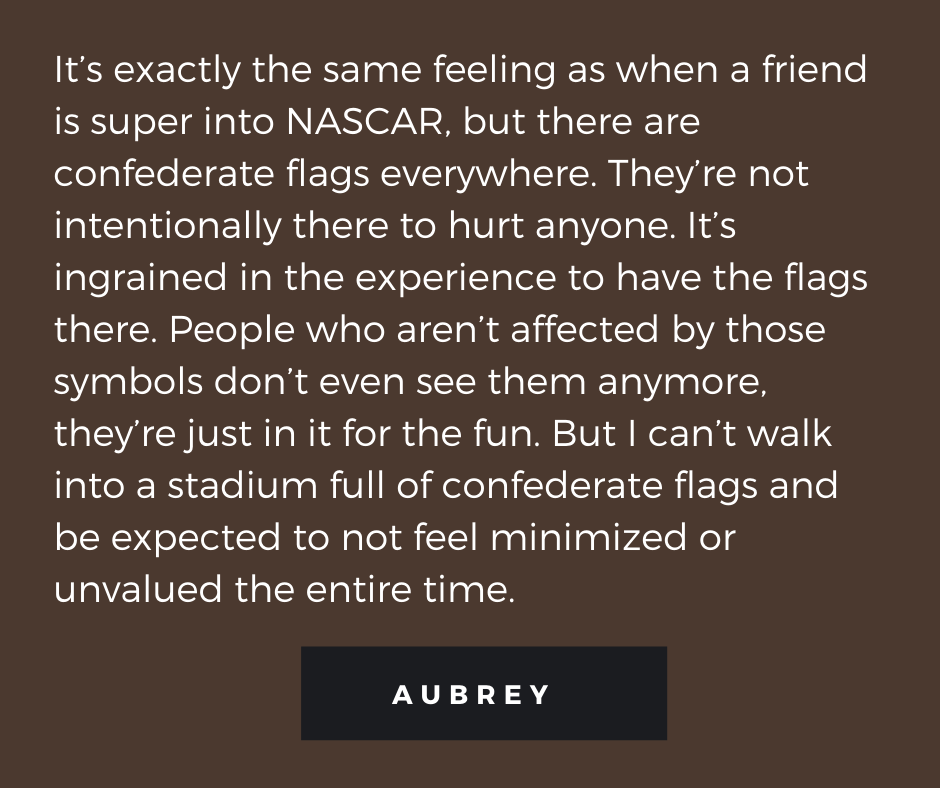
From the perspective of someone who isn’t in the BDSM community but who wants to learn more about everything that the practices can offer- the terminology behind Master and Slave is entirely a turn off and stops me from even being able to open up to bdsm. As a black person, seeing those titles and seeing the bdsm community defend them so fiercely makes it feel like they’re the gatekeepers keeping me out for being uncomfortable. I recognize that it’s a deeply institutionalized phrase that means more to those who are already so ingrained in the community. But when I’m invited to m/s events, it makes me uncomfortable because I can’t get past the name.
It’s exactly the same feeling as when a friend is super into NASCAR, but there are confederate flags everywhere. They’re not intentionally there to hurt anyone. It’s ingrained in the experience to have the flags there. People who aren’t affected by those symbols don’t even see them anymore, they’re just in it for the fun. But I can’t walk into a stadium full of confederate flags and be expected to not feel minimized or unvalued the entire time.
The concept behind modern m/s relationships is intriguing, but I’ll never get to be into it without the constant reminder of our very recent history/ daily life as a society. I hope that people will be open to my perspective, because it’s entirely hurtful to be shut out.
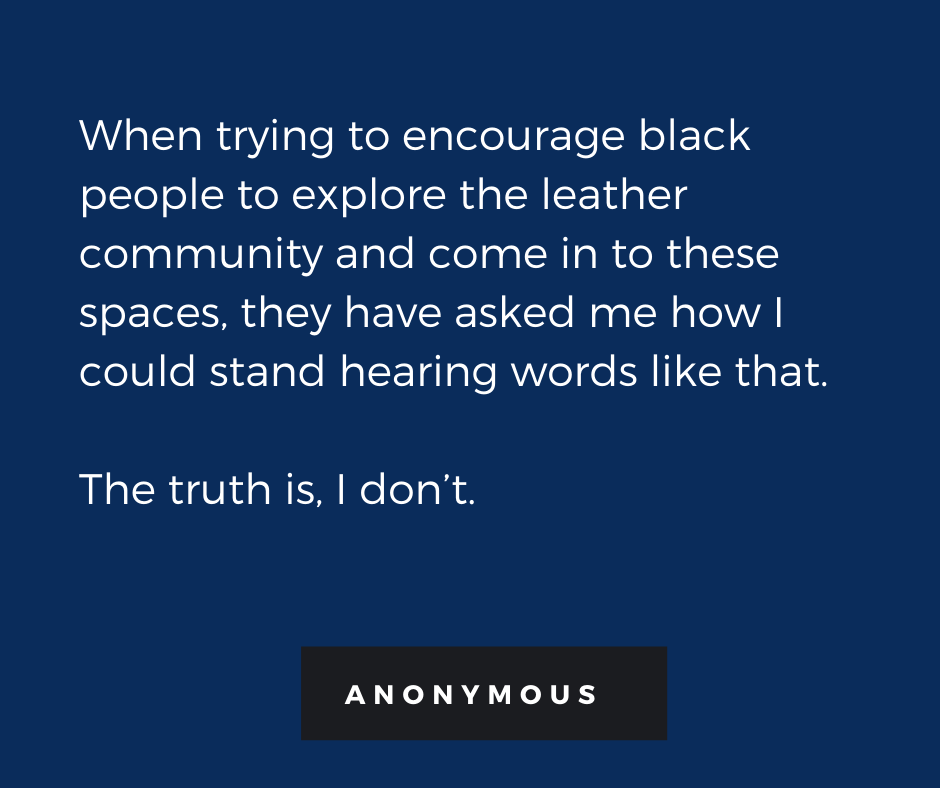
When I first joined the leather community, every chance I got I pulled aside any black person to bend their ear. I asked them how they dealt with white people using words like Master and slave. A lot of them looked at me with sadness because no one had a real answer. It hurt but they got used to it. When trying to encourage black people to explore the leather community and come in to these spaces, they have asked me how I could stand hearing words like that. The truth is, I don’t. I cringe. The first time a white man introduce himself as Master so-and-so, I was shocked that someone would look me in the eye and ask me to call them Master. The thought running thru my mind was that I will NOT call you Massa. Since then I have learned to grow a hard shell against this language because a part of me has lost hope that it will ever change.
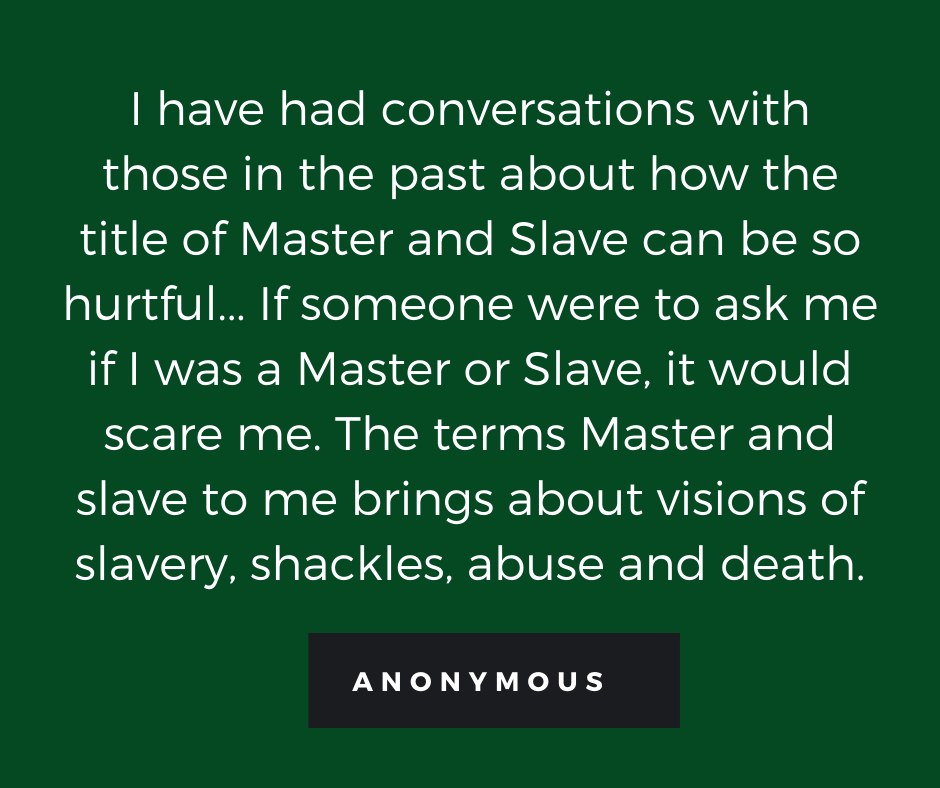
Your post made me feel… at ease. I have had conversations with those in the past about how the title of Master and Slave can be so hurtful. There is a whole community of people who I may not ever meet because of those two words. Not because I don’t think they are good people. Just clueless and prideful. When I walk into a ‘kink’ dungeon or event and someone asks me if I top or bottom, there is a level of safety implied. If someone were to ask me if I was a Master or Slave, it would scare me. The terms Master and slave to me brings about visions of slavery, shackles, abuse and death. If in that moment I say slave, it brings down hundreds of years of oppression onto my shoulders. The term immediately turns the askers face into a twisted confusion of misunderstanding and a lifetime in the death grip of systemic racism. It is confirmation, for some. Confirmation of where they think people who look like me belong. In shackles, collared, and beneath their boots. When Y/you both posted that statement, it was relief I felt. There is a level of wariness I have always had around you both. I have spent some great times and created awesome memories with you. It doesn’t dismiss the feeling of concern I have as a black person aspiring to an M/s type relationship talking to two white queers who don the label and embody the values of those words in their everyday lives. I often wondered if you would/could understand the immensely heartbreaking swim through the weighted mud of identifying with those terms. If you as white queers could ever understand what it feels like to bare the brunt of the mountains of hatred those two words hold for me. The weight of two words that would see me relive the destruction of my ancestors souls every time it left my lips. You made that post and I sat back in my chair and exhaled. My shoulders relaxed. My jaw unclenched. And I knew then that you understood. Even just a little bit… and some of the mountain crumbled away… and I exhaled. I hope you don’t lose the title. If you did it would mean that people are more attached to the words than the actual traditions and rituals it represents. It would mean the death of the M/s community for me. I am currently looking at those who are responding negatively to your post with an eye of possible danger. Making notes on whom to stay away from.

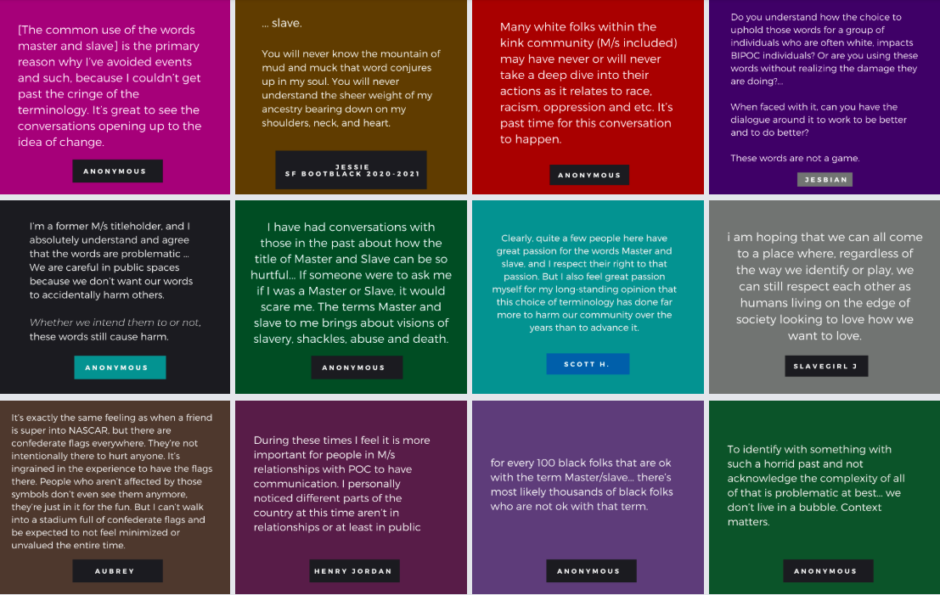
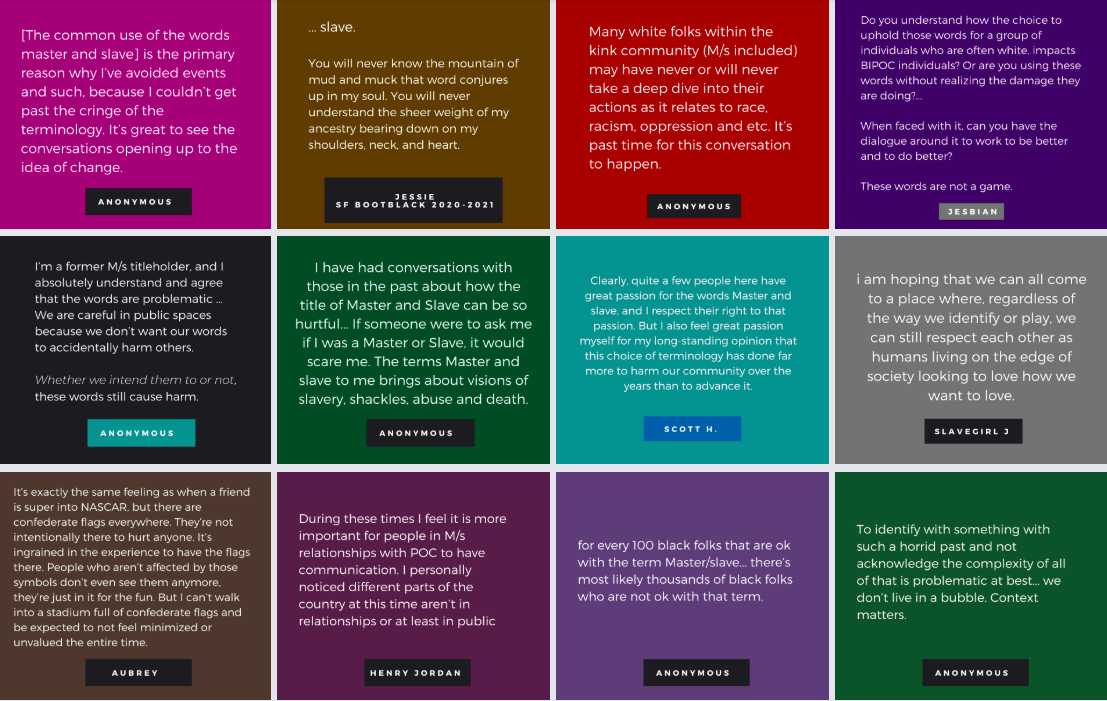
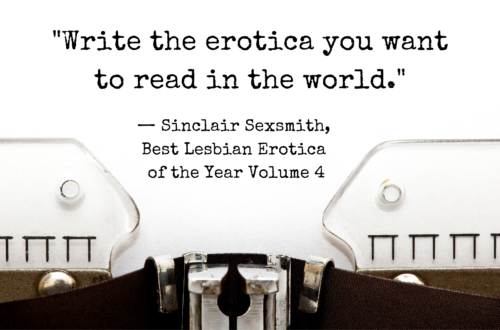
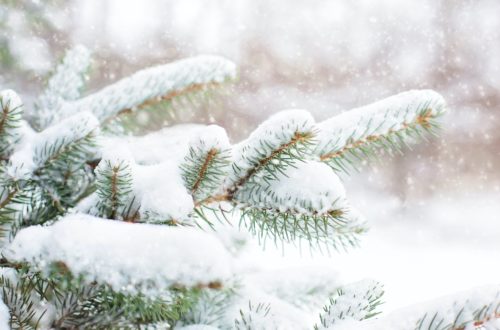

One thought on “The Impact of M/s Language: Voices from the Community”